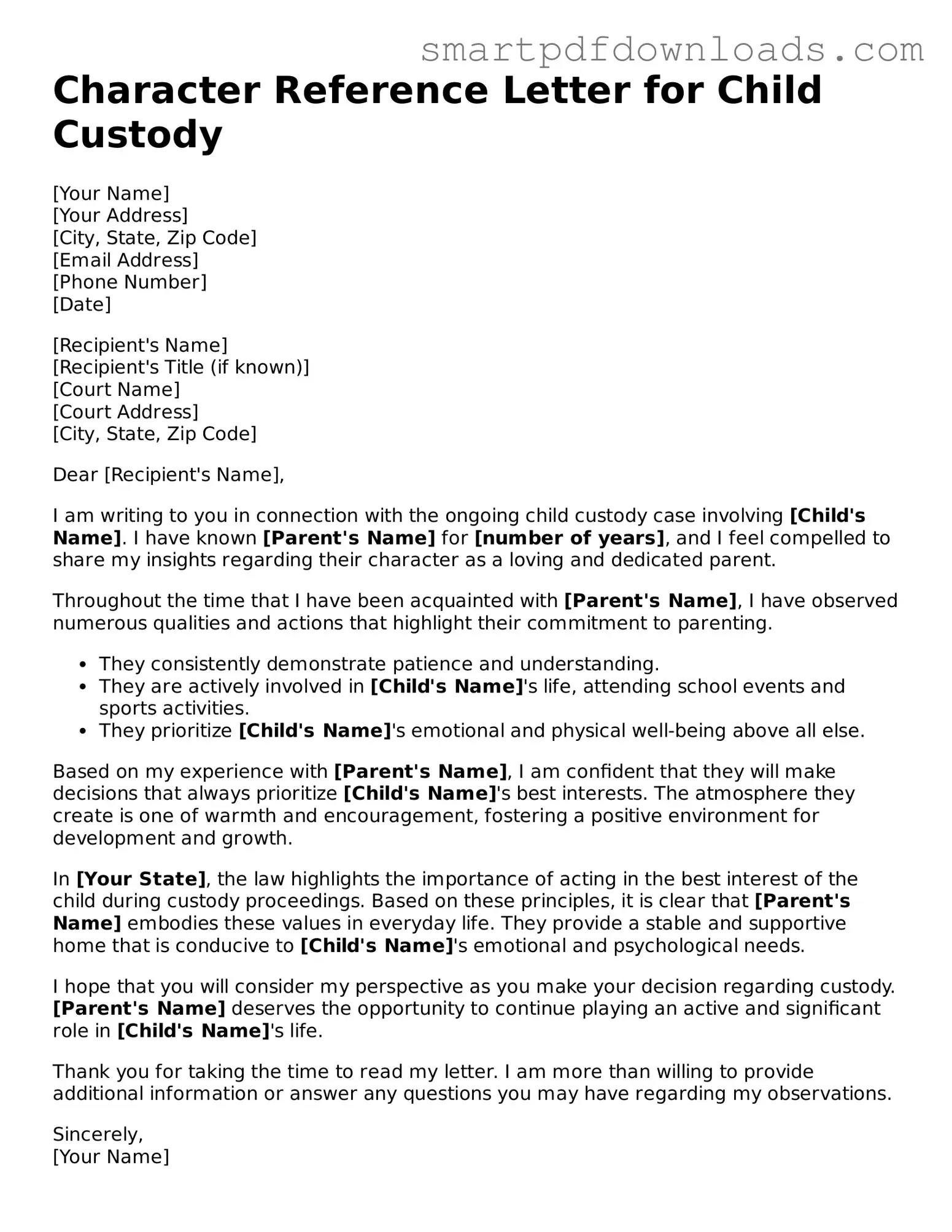Free Character Reference Letter for Child Custody Form
The Character Reference Letter for Child Custody is a crucial document that can significantly influence custody decisions during family court proceedings. This letter, written by friends, family, or colleagues, serves to highlight a parent's character and their suitability for custody. By providing insights into a parent's behavior, values, and relationships, it can help establish a strong case for their custodial rights.
Edit Character Reference Letter for Child Custody Online

Free Character Reference Letter for Child Custody Form
Edit Character Reference Letter for Child Custody Online

Edit Character Reference Letter for Child Custody Online
or
⇓ PDF File
Finish the form and move on
Edit Character Reference Letter for Child Custody online fast, without printing.